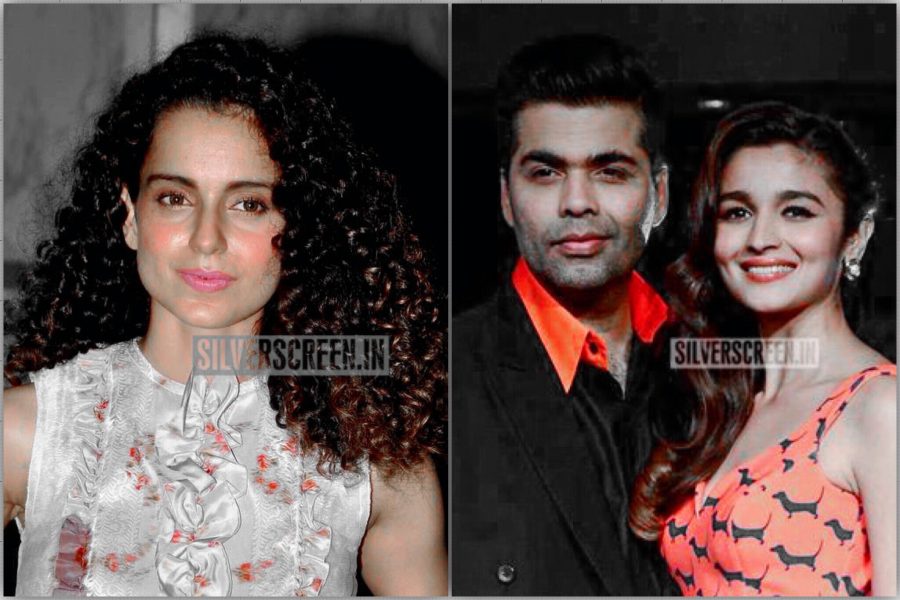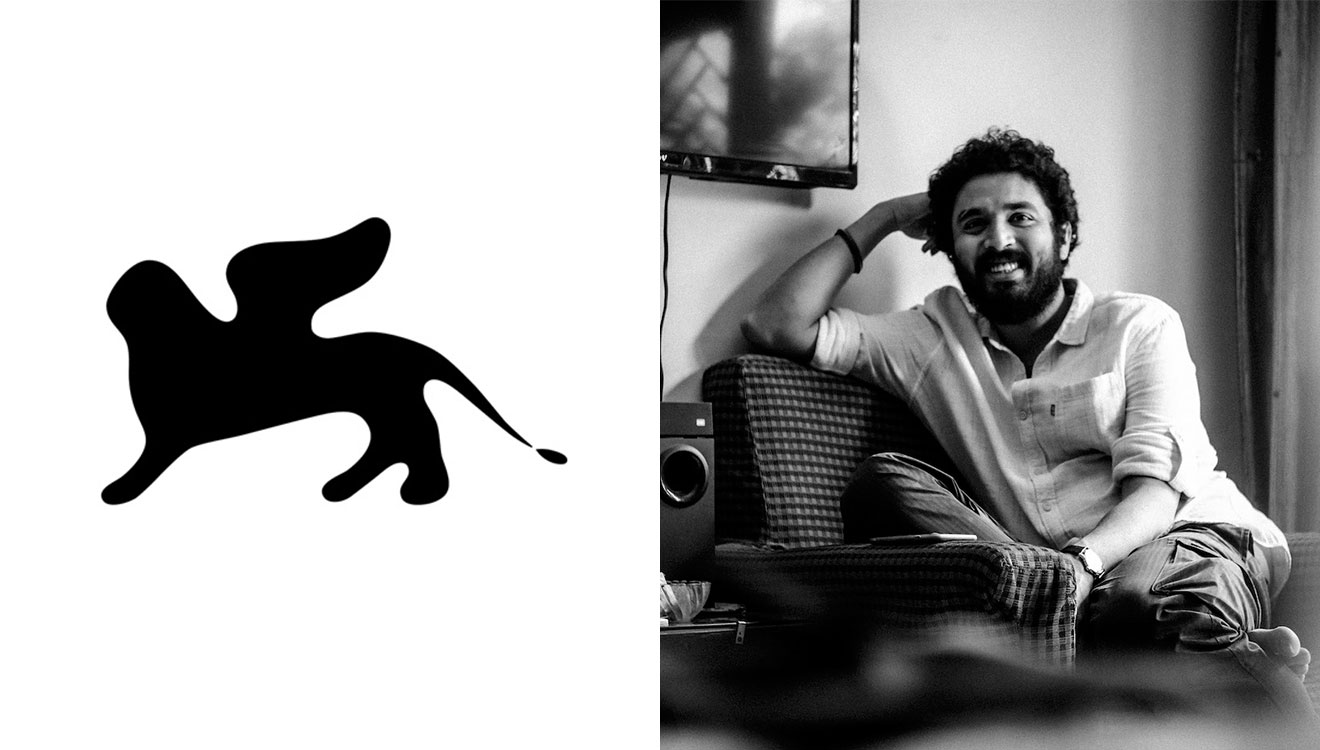All journalist Barkha Dutt had to do was say the words ‘Kangana Ranaut,’ and pause. The audience began tittering. Karan Johar drew back with theatrical wariness and a mocking half-smile. And Dutt launched into a series of feministy questions, aimed at getting an apology out of Johar, or at least an admission that he had tried to patronize her because she was a woman.
It didn’t work. Johar said he would have done the same had it been a male actor, like Ajay Devgn.
But Barkha, we could have told you – the problem was not Kangana’s gender. It was her class.
The two were speaking at the inaugural event ‘Townhall’, launched by Barkha Dutt’s independent venture Mojo. The topic of Kangana came up during the hour-long interview on the heels of Johar saying he had many regrets about his Ae Dil Hai Mushkil apology video, which he said had been rightfully termed a “hostage” video. He admitted he had been afraid, angry, and felt spineless. He felt like there was an invisible gun at his head.
Spineless? asked Dutt, almost surprised.
After all, they are both very aware of what goes into headlines. Karan emphatically repeated the word – spineless. (Late, he’ll refuse to say ‘gay’, because he doesn’t want to be defined by that headline.)
Regrets for being forced to apologise because of pressure from politicians and the studio. Admission that if the situation came up again, he would probably have to do it again.
But when asked about Kangana a moment later, Karan Johar said he had no regrets about saying she should leave the industry if she didn’t like it. Even when Barkha pointed out that such a rejoinder was no different from the ‘go to Pakistan if you have a problem with us’ kind of aggressive patriotism.
No matter how kindly she prodded, Johar refused to acknowledge that his comments were patronizing. Further, when Barkha said – consider it from Kangana’s point of view, consider that she is a self-made woman who rose in the industry with no sugar daddies, had slept on pavements – Johar interrupted her to insist that he too had struggled, and that nobody was appreciating him for his struggles. He even threw up his hands as he said it.
“I felt attacked, why should I apologise? She had an opinion and I respect that, but I had my opinion to give as well. She had an opinion, she is an exceptional talent and I have always said that. She has her opinion and she said it. Two weeks later, I was given a platform and I said what I had to. I don’t know what to say, what she meant, whereas I have never crossed paths with her beyond here and there. She decided to choose me, to make her point which is fine,” he said.
****
Johar, who recently had a son through surrogacy, also told Barkha Dutt that while it was great that mothers in India could get six months maternity leave, single fathers like him would also need that much time. Because, as in his case, he had to coordinate between four Malayali nurses and his 75-year-old mother. (Nurses are absolutely necessary, he said.)
Later, he’ll talk about how it’s not your sexuality that should determine whether you can have a child – but whether you have the resources, the money.
As expected, when asked about being gay, Johar said he didn’t want to say those three words because he didn’t want his life to be reduced to a headline. This was on the heels of him saying it was people’s job to talk, and he felt amused by comments people made about him.
He also admitted that he had spread misinformation by saying he could get jailed for saying he was gay. However, he then said he had done “enough” and “more” for the LGBT community. More than the activists who criticised him for his public refusal to come out, as it would deter others from coming out.
Instead, Johar explained that he had given gay people visibility in his movies, even if it was by caricaturing them, as in Dostana. He said “at least” he had put the issue in the drawing room.
However, LGBT activists are unlikely to agree that selling that kind of content as entertainment amounts to doing “more than enough” for the community.
Clarifying that he didn’t aim to be an icon, he said, “I am just living my life….and if that journey is a point of inspiration to some, I will be very happy.”
***
Karan seemed to have little sympathy for those of poorer income and ‘bad’ English (aka did not attend a posh school). When Barkha brought up an anecdote from his book, in which a man comes up to him with his wife and asks him if he is gay, Karan responds by jokingly saying, ‘Why, are you interested?’ However, during the interview, Karan emphasised that his issue with the question was that the man had said ‘a gay’. He then went on to mock the man’s wife, who had asked him for a ‘solfie’. Barkha laughingly asked him to not be a snob, even as the two continued to play on the word ‘solfie’.
Notably, Kangana Ranaut had said that she had been ridiculed for her English. Johar, meanwhile, continues to believe that he treats her and others from a different class background with respect.
Speaking to Manu Joseph at a Times LitFest, Kangana had said, “I do not find anything embarrassing about my born existence. People tried to shame me, coming from small town, not being able to speak English, not being able to dress up properly. But that didn’t shake anything in me.”
***
Earlier, Kangana, who appeared on an episode of Koffee With Karan Season 5, along with Rangoon co-star Saif Ali Khan, had called Karan a “snooty flag-bearer of nepotism” during the show. Although Karan laughed it off at that point, subsequently, he told film critic Anupama Chopra that Ranaut could “leave the industry if it was so bad”.
Recommended
Ranaut in turn refused to back down. In the interview with Mumbai Mirror, she said she had been playing the ‘badass card’ on his show, and not the ‘woman card’ or the ‘victim card’.
Read: ‘I didn’t play the “woman card”, I was being a badass’ – Kangana Ranaut On Karan Johar’s Remarks
The exchange between the two ignited a debate on nepotism in the industry with stars like Varun Dhawan and Sushant Singh Rajput revealing their stance on the issue.
Also read: Karan Johar needs a quick lesson on the meaning of nepotism
*****



